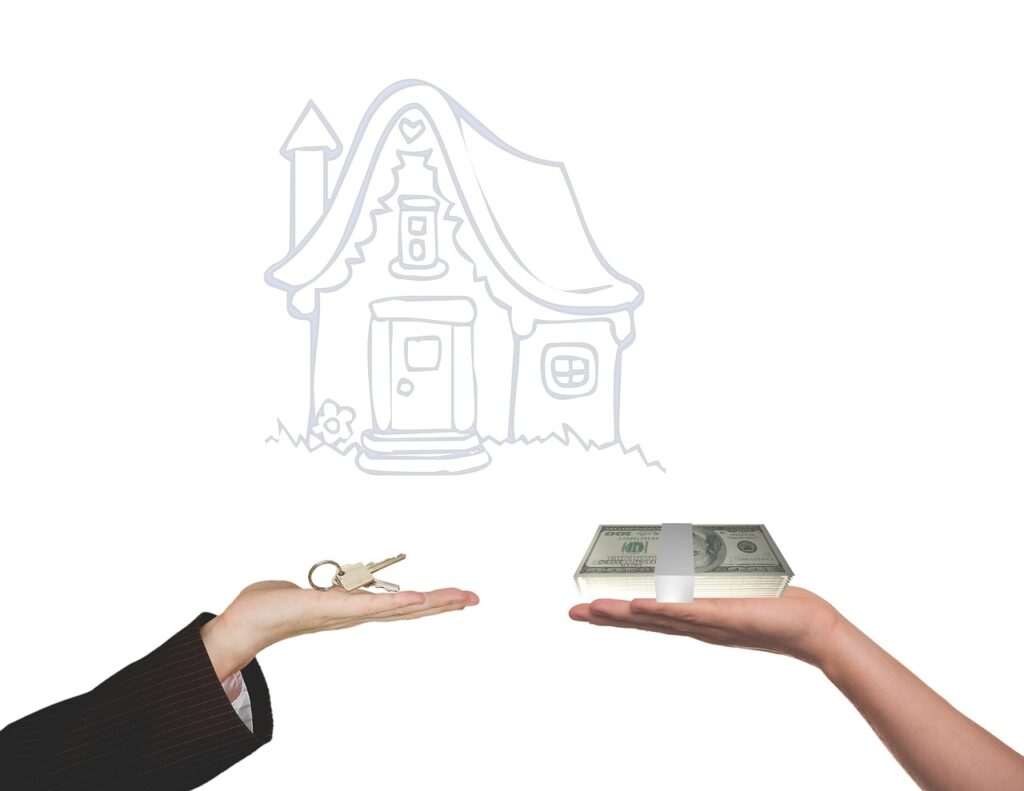Buying a home is often seen as the quintessential American dream. But with the changing housing market and evolving financial landscapes, renting is becoming a more viable and attractive option for many.
If you’re debating whether to rent or buy, this guide will help you weigh the pros and cons of each to make an informed decision.
Introduction
Deciding whether to rent or buy a home is a major financial decision that can affect your lifestyle, financial stability, and future plans. While homeownership has traditionally been viewed as a mark of success and financial security, renting has gained popularity for its flexibility and lower initial costs.
This post will break down the key factors to consider in each option, including financial aspects, lifestyle implications, and long-term impact.
Pros of Renting a Home
Lower Upfront Costs
Renting typically requires less initial investment compared to buying. Most rental agreements require a security deposit, which is usually one to two months’ rent, and the first month’s rent. In contrast, buying a home involves a down payment, closing costs, and other fees, which can add up to tens of thousands of dollars.
Flexibility
Renting offers greater mobility. If your job or life situation changes, it’s often easier to relocate when you’re renting. This flexibility is ideal for people who may need to move frequently or are unsure about their long-term plans.
No Maintenance Costs
As a renter, you’re generally not responsible for maintenance and repair costs. If something breaks or needs fixing, your landlord is usually responsible for addressing the issue. This can save you both money and the hassle of dealing with repairs.
No Property Taxes
Renters do not pay property taxes, which can be a significant expense for homeowners. Property taxes vary widely by location, but they can add up to thousands of dollars annually.
Predictable Monthly Payments
Renters usually have fixed monthly payments that do not include unexpected expenses. This can make budgeting easier, as you’re less likely to encounter surprise costs related to property upkeep.
Cons of Renting a Home
No Equity Building
Renting does not build equity. Rent payments go to the landlord and do not contribute to ownership of the property. Over time, this means you are not investing in a tangible asset that could appreciate in value.
Limited Control Over the Property
Renters have limited control over their living space. Changes or improvements often require landlord approval. This lack of control can be frustrating for those who want to personalize or modify their living environment.
Rent Increases
Rental rates can increase, sometimes significantly, depending on the local housing market. Annual rent hikes or changes in landlord policies can affect your budget and stability.
No Tax Benefits
Homeowners can benefit from tax deductions on mortgage interest and property taxes. Renters do not receive these benefits, which can be a significant financial advantage of owning a home.
Less Stability
Renting can sometimes offer less stability than owning. A landlord can choose not to renew your lease, and you may have to find a new place to live. This lack of long-term stability can be unsettling for some.
Pros of Buying a Home
Building Equity
Each mortgage payment contributes to building equity in your home. Over time, as you pay down your mortgage and the property potentially appreciates in value, you build wealth through homeownership.
Tax Benefits
Homeowners can benefit from tax deductions on mortgage interest and property taxes. These deductions can significantly reduce your taxable income and overall tax liability.
Control Over the Property
Homeowners have full control over their property. This means you can renovate, decorate, and modify your home to suit your preferences without needing approval from a landlord.
Stability
Homeownership provides long-term stability. Once you own a home, you’re not subject to lease renewals or potential eviction. You can stay as long as you wish, providing a sense of permanence and security.
Potential for Appreciation
Real estate often appreciates over time, meaning your home could increase in value. This potential for appreciation can be a significant financial benefit if you decide to sell your home in the future.
Cons of Buying a Home
High Upfront Costs
Purchasing a home involves substantial upfront costs, including a down payment, closing costs, inspection fees, and more. These costs can be a barrier for many prospective homeowners.
Maintenance Responsibilities
Homeowners are responsible for all maintenance and repair costs. From fixing a leaky roof to handling plumbing issues, these expenses can add up and require time and effort.
Property Taxes
Homeowners must pay property taxes, which can be a significant annual expense. Property taxes vary by location but can be quite high in some areas.
Less Flexibility
Buying a home ties you to a specific location. If you need to move for work or personal reasons, selling a home can be a lengthy and complex process, and you may not get the price you want.
Market Risk
The real estate market can fluctuate. While property values generally appreciate over the long term, there are no guarantees. Economic downturns can affect property values and potentially lead to financial losses if you need to sell during a market slump.
Financial Comparison

Initial Costs
- Renting: Lower initial costs, typically one to two months’ rent and a security deposit.
- Buying: Higher initial costs, including a down payment (usually 3-20% of the home’s price), closing costs, and other fees.
Monthly Payments
- Renting: Fixed monthly rent payments, with the potential for periodic increases.
- Buying: Monthly mortgage payments, which may include principal, interest, property taxes, and homeowners’ insurance.
Long-Term Costs
- Renting: No long-term investment benefits or maintenance costs, but rental payments do not build equity.
- Buying: Ongoing mortgage payments, maintenance costs, property taxes, and potential homeowner association fees, but you build equity and may benefit from property appreciation.
Tax Implications
- Renting: No tax benefits.
- Buying: Tax deductions on mortgage interest and property taxes.
Lifestyle Considerations
Renting
- Mobility: Ideal for those who anticipate relocating or prefer flexibility.
- Maintenance: Less hassle, as landlords handle repairs and maintenance.
- Customization: Limited ability to make changes to the property.
Buying
- Stability: Provides long-term stability and a sense of permanence.
- Customization: Full control over home improvements and renovations.
- Community: Opportunity to establish roots and become part of a community.
Decision-Making Factors
- Financial Stability: Assess your current financial situation, including savings, income stability, and debt levels. Homeownership typically requires a stronger financial foundation.
- Future Plans: Consider your long-term goals and how long you plan to stay in a location. Renting might be better for short-term situations, while buying could be ideal for long-term stability.
- Market Conditions: Research the local real estate market. In some areas, buying may be more advantageous, while in others, renting could be more cost-effective.
- Personal Preferences: Reflect on your lifestyle preferences, such as the desire for customization and control over your living space versus the flexibility of renting.
Conclusion
The decision to rent or buy a home depends on a variety of factors, including financial readiness, lifestyle preferences, and long-term goals. Renting offers flexibility, lower upfront costs, and no maintenance responsibilities, but it doesn’t build equity or offer tax benefits.
On the other hand, buying a home provides the opportunity to build equity, benefit from tax deductions, and enjoy greater control over your property, but it comes with higher initial costs and ongoing maintenance responsibilities.
Ultimately, the choice between renting and buying should align with your personal financial situation and life goals. Carefully evaluate the pros and cons, and consider speaking with a financial advisor to determine the best path for your unique circumstances. By making an informed decision, you can ensure that your housing choice supports both your immediate needs and long-term aspirations.

